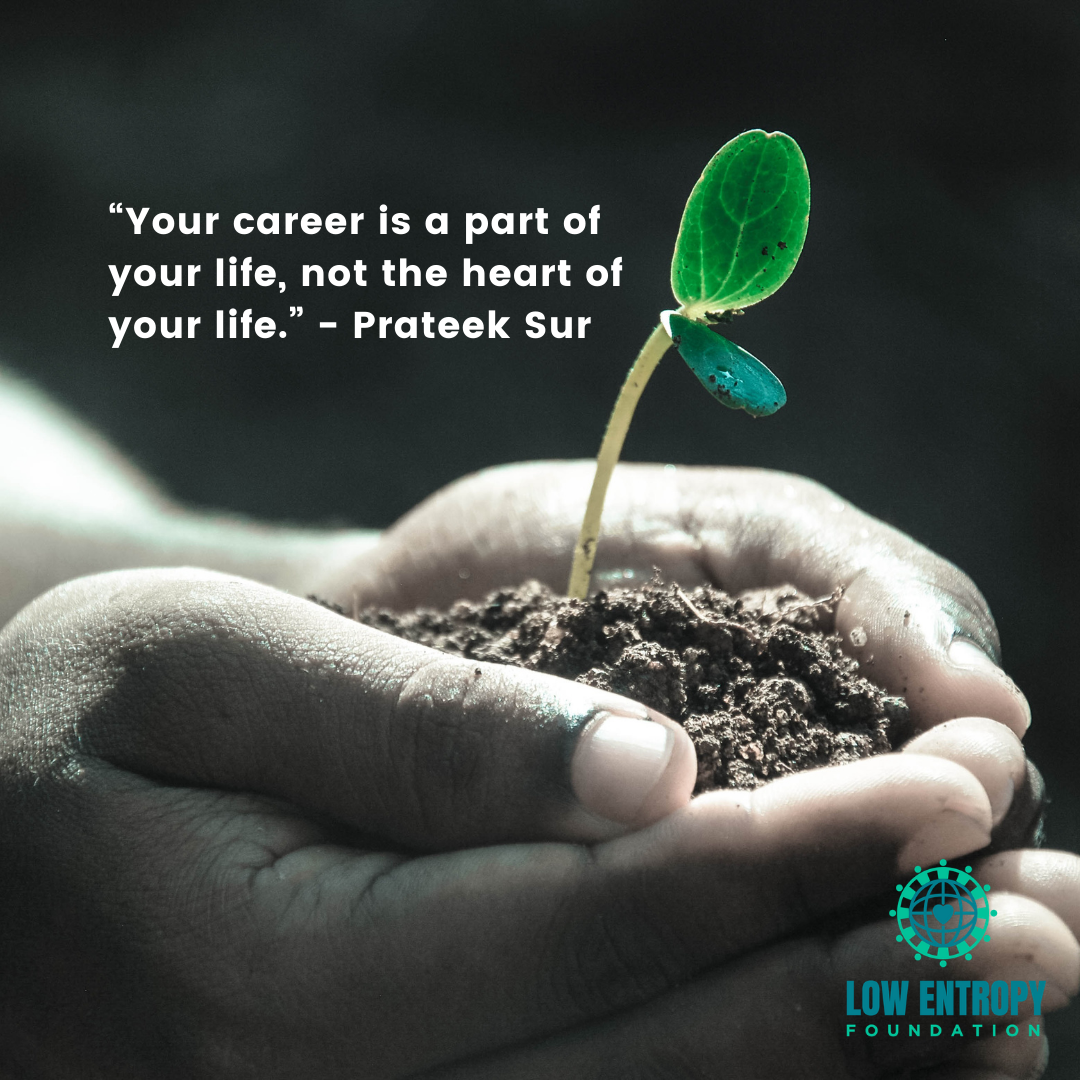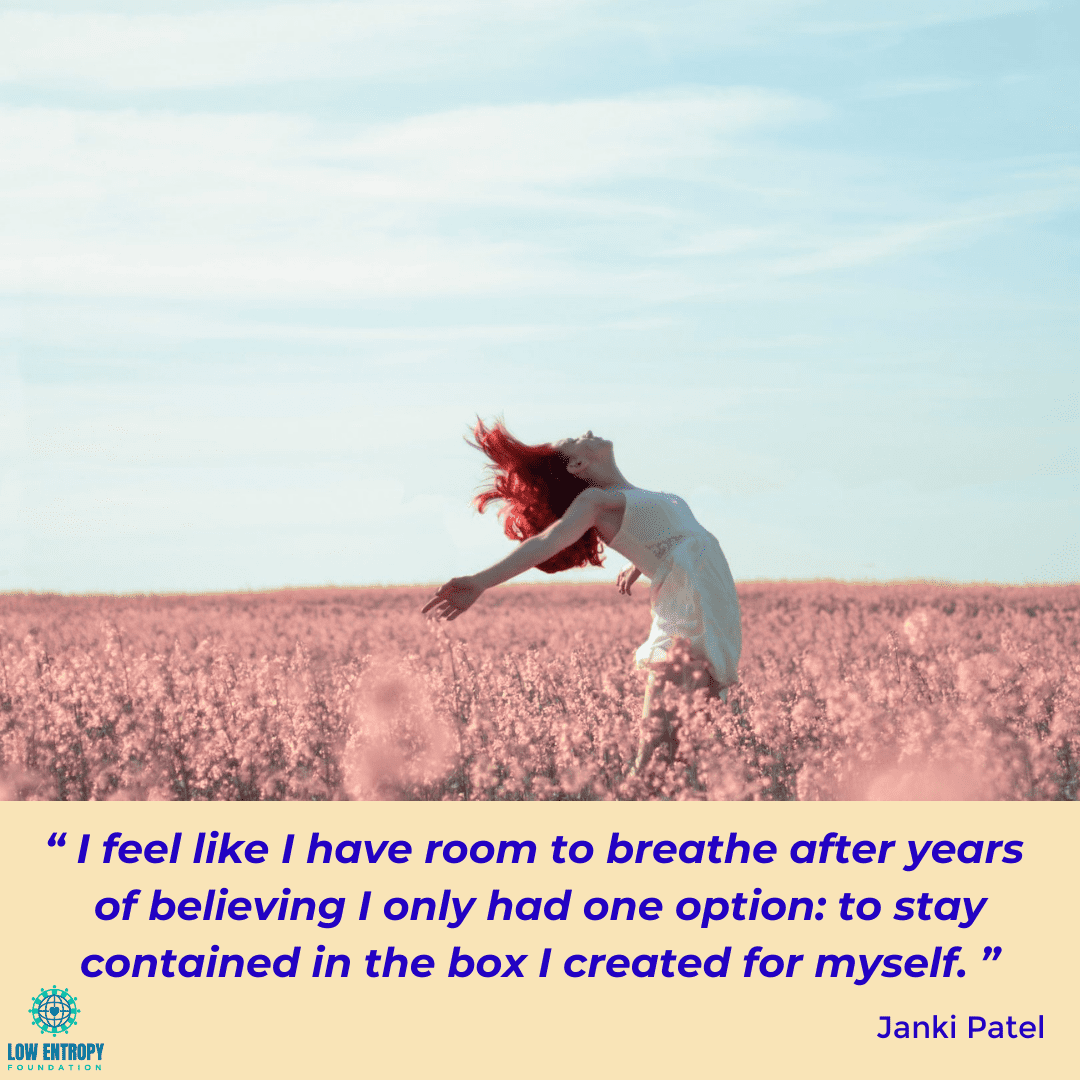Your career is a significant part of your life – for many, it sets the tone and rhythm of their day-to-day, while laying a foundation for the future. While many take the safer route, there are others who prefer to take the road less travelled. Low Entropy Volunteer Writer Prateek Sur explains how he was able to carve a path between money and passion.
Have you ever had a conflict in your life when you were thinking about whether to work for money and a settled life, or work for your passion? I can guarantee that it’s something that people from all over the world have thought of at least once in their lives. Is it okay to think outside the box while answering this dilemma? Well, let me give you an example from my life.
With Indian parents, there is this huge urge to make their kids work hard and make them either engineers or doctors. This isn’t just in India, as Indians who settle abroad also follow the same pattern. This may be why you often see Indian kids topping the ranks in most of the classes in primary or high school. In a country of almost 1.5 billion people, can you imagine the amount of scarcity for skilled labour for other jobs when everyone wants their kids to be engineers or doctors?
In my primary and high school, I was a bright student and used to be one of the rank holders in pretty much every school year. However, unlike my peers, I never had any specific work ambition. After my 12th exam, I decided to get myself enrolled in an engineering college as per the wishes of my parents. I got into one of the premier universities in the country, and everyone was super happy. However, this was the first time that I was to leave home and stay in a city almost 1700 kilometres away from my hometown.
To tell you the truth, I was not that great at engineering, but I was somehow managing to pass the semesters with a decent score. Even though I wasn’t good at the subjects, I was definitely great at the extra-curricular activities. Be it writing for the college newspapers or singing and dancing at the college festivals or disc-jockeying for the college radio or making short films, I was everywhere.
Today, almost 10 years after graduating from college, when I look back, I feel that those four years at my engineering college helped me shape my career as a content writer and an entertainment journalist. You may be asking, what is an engineer doing in the field of journalism and writing? Well, the passion began during college, where I realised that this was indeed my calling, and not engineering.
I know many of you can relate to the feeling of not having followed your passion and having settled for something that’s more secure in terms of money. While some may be afraid of the consequences of following a monetarily unsure career, there would be many others who wouldn’t have done it because of what their parents would think of them, or what the society, in general, would think of them.
Here’s my advice: take the risk. Take a leap of faith, but for a limited time. Prove to your parents that yes, the field of your passion not only gives you mental peace and job satisfaction, but also pays you decently enough to have a livelihood. Yes, you might not be earning a seven-figure salary every month, but you would be doing what you love from your heart, and not sitting in a boring office, punching in and out every day, just waiting for the month to end to get your paycheck.
As far as your parents go, they may be pissed at you at the start, but when you show them actual growth and career stability, they may come around and see your vision. They will eventually understand – they’re your parents after all, they wouldn’t be happy seeing their own child unhappy in a boring job.
You may have to give time, not only to your passion, but also to your parents to come around. Careers based on passion may not be the most lucrative, so don’t spend sleepless nights when you see your college roommate get a Porsche or your childhood neighbourhood buddy get a job paying a 10-figure salary. Be patient, and more importantly, be content with what you have. You may have less, but you don’t know the mental tension and stress these buddies of yours are going through in order to get these materialistic things. There will be a point in your life when they will envy you for having the best mental health and peaceful life.
Be sure of your passion, follow it diligently and give it your absolute best. As I mentioned at the start, who would do the other jobs if every kid grew up to be an engineer or a doctor!
Choosing a career isn’t a cakewalk, but yes, when you do choose, choose wisely what you want from your life. Your career is a part of your life, not the heart of your life.
What lies at the heart of your life? Drop by a Low Entropy meet-up to tell us how you’re steering your career, or simply pop down to the comments section and leave us a note!








